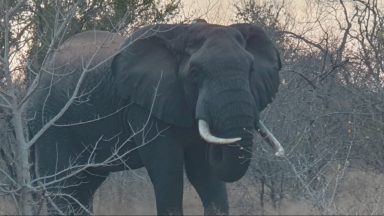On annual World Pangolin Day, we are reminded of the plight of these unique and beautiful scaly anteaters.
After rescuing this pangolin from poachers, the dedicated conservation and anti-poaching teams in Maputo National Park took care of care of it to ensure it was healthy and unharmed, before releasing it by an anthill elsewhere in the park.
Pangolins have been the focus of growing attention in recent years due to the massive quantities of their scales illegally traded for traditional medicine produced in China. Pangolin scales are also used in traditional Asian medicine, which is believed to treats a range of medical conditions, despite the fact that there is no medical validity to these claims. Their meat is also considered a delicacy in some Asian countries.
These solitary animals wear full body armour – the much sought-after, large, keratin scales – and, when startled or threatened, will roll up completely into a ball, with their sharp scales exposed to predators. Unfortunately, this clever self-defence mechanism does not protect it from humans. They have become the pangolin’s biggest predator, poaching and illegally exporting and importing pangolin as food, medicine, trophies or even pets.
While pangolins face multiple threats, including habitat destruction and the bushmeat trade, it is the transnational trafficking of their scales that is pushing them towards imminent extinction. Pangolin is now the most illegally trafficked wild animal on the planet and all eight species are categorised under the International Union for the Conservation of Nature’s Red List as either Critically Endangered, Endangered or Vulnerable.
Here in Maputo National Park, Peace Parks Foundation is working closely with the National Administration for Conservation Areas (ANAC) to increase the effectiveness of protection efforts in order to create safe ecosystems within which species such as pangolin can once again thrive. These efforts include improving skilled counter-poaching strategies and capacity, developing advanced communication and technology systems and engaging local communities.

